Diocese of Jerusalem leaders share updates on current conditions
June 4, 2020- Posted in Diocese of Jerusalem, Education, Gaza, Healthcare, Jerusalem, West Bank
What’s it like right now in Jerusalem, the West Bank, Gaza, Israel, and Jordan?
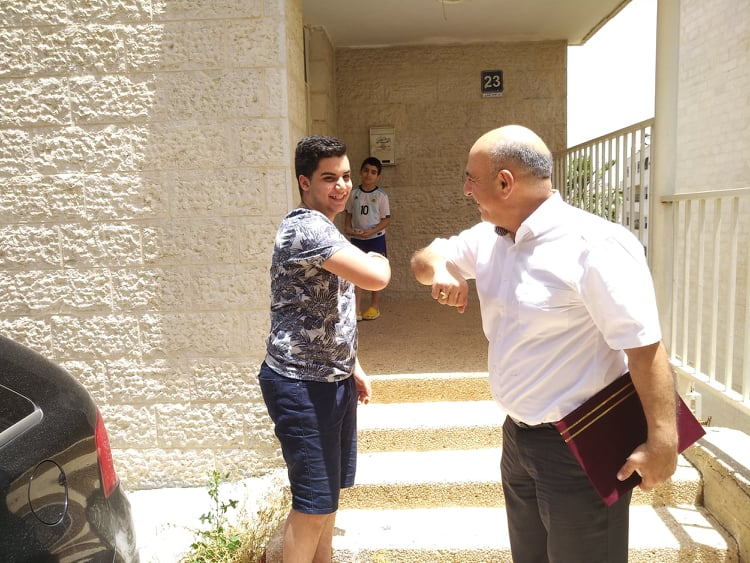
Ramallah, West Bank
Arab Evangelical Episcopal School
As with other schools in the West Bank, AEES, a K-12 academic school, moved to online instruction for its 840 students in March when the Palestinian Authority closed all schools.
On May 19, Headmaster Iyad Rafidi hand-delivered diplomas to the homes of graduating seniors. Parents and students alike were deeply touched by this kind gesture to honor the hard work of these new graduates.
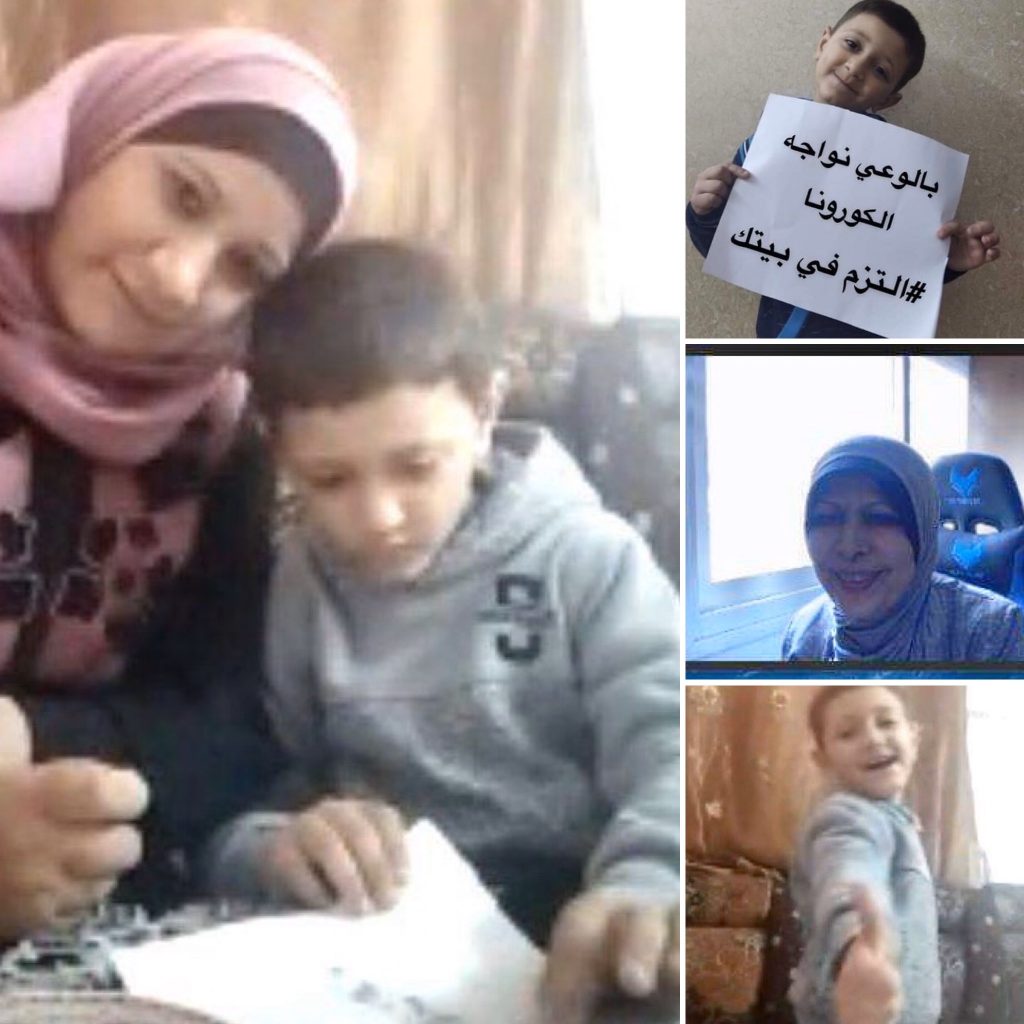
East Jerusalem
Jerusalem Princess Basma Centre
Early in the pandemic, JPBC therapists retooled the Center’s Mother Empowerment Program, a residential program for parents and their disabled children from the West Bank and Gaza to be conducted online for mothers and children in their homes.
This approach has met with such success that Ibrahim Faltas, the director of JPBC, said that moving forward the Mother Empowerment Program will employ a blend of online services with a shorter residential period. The new program model was launched on June 1 after completion of residential space renovations that allow for social distancing.
The JPBC Inclusive School has reopened, but parents are fearful and few students have returned to classes. Online education, even with the school’s autistic students, has proven to be quite successful.
Ibrahim also told us that JPBC hopes to build the capacity of staff at JPBC outreach centers throughout the West Bank, so fewer therapists need to travel from Jerusalem to these centers, most of which are in small villages.
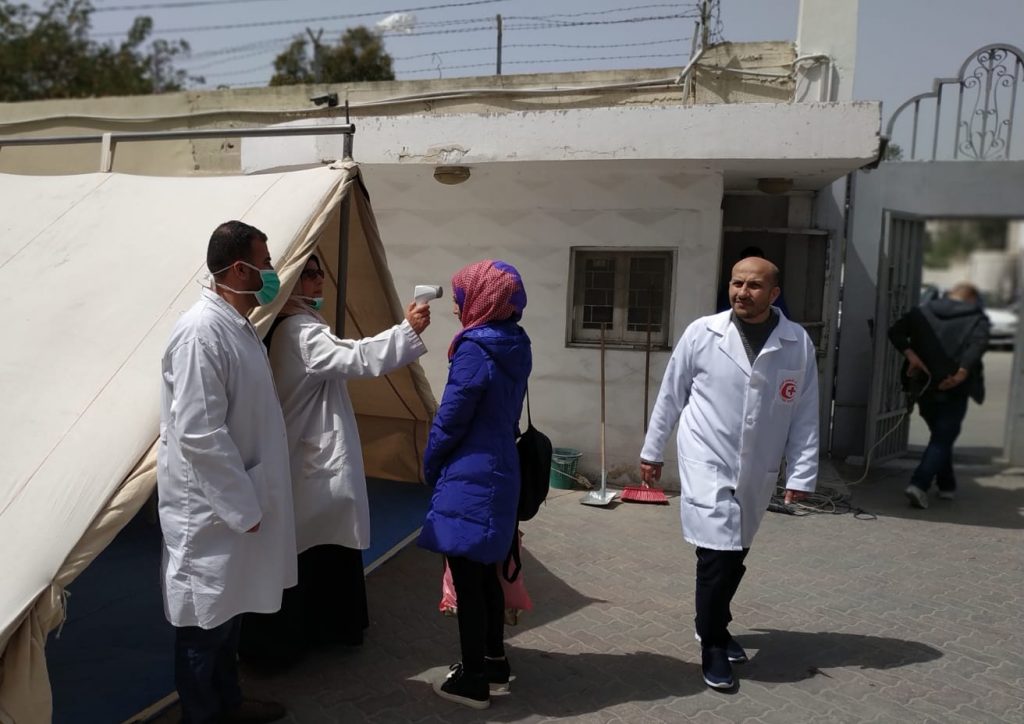
Gaza City
Ahli Arab Hospital
Miraculously, Gaza has been spared a serious outbreak of COVID-19. However, last week the number of confirmed cases in Gaza doubled. The new cases were Gazans who work in Israel and Egypt and returned to Gaza through the Rafah border crossing with Egypt.
We spoke with Suhaila Tarazi, Ahli’s director, last Wednesday and she is deeply concerned that the virus will surge in Gaza’s crowded neighborhoods and refugee camps. To date only 9,500 Gazans have been tested for the virus. The lack of running water in many homes, the re-opening of schools by order of Hamas, and the disinclination of most Gazans to practice social distancing are all troubling. Suhaila also reported that prices for medicines and medical supplies have tripled in the past month, due to limited supplies.
Because Ahli does not have an intensive care unit, it was designated for moderate cases of COVID-19, emergency care and surgical treatments referred by other hospitals. At the same time, due to preparation for an outbreak and social distancing requirements, core services such as the free community clinic, mammography services, and the child trauma clinic were cut back for several weeks, reopening on April 13. With only five Ministry of Health community clinics open to serve the 2 million people in Gaza, the demand for free community clinic services at Ahli has grown dramatically in recent weeks.
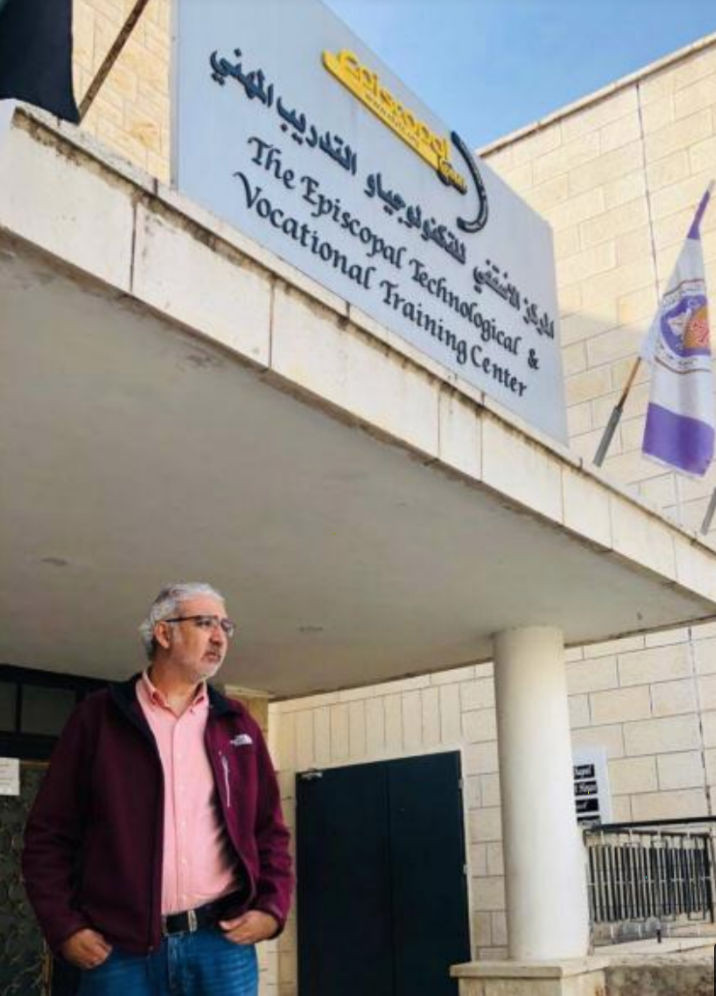
Ramallah, West Bank
Episcopal Technological and Vocational Training Center
Giovanni Anbar, ETVTC Director, told us last week,
“We have to face a lot of new challenges, but we are ready!
“We are trying our best to work in the new conditions. Financially we are struggling as many others are. We depend on income from our guesthouse and hosting meetings and events. These sources of income dramatically stopped in March and will not return soon.
“We will continue our ministry in changing young people’s lives to give them opportunities for success in their future.”
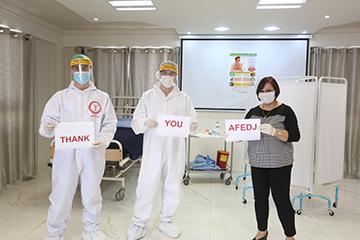
Nablus, West Bank
St. Luke’s Hospital
Beginning in February, St. Luke’s Hospital began to prepare to meet the challenge of a COVID-19 outbreak. Working with other hospitals across Nablus, Dr. Walid Kerry and his staff coordinated their response. Salwa Khoury, hospital administrator, wrote, “We wondered how St. Luke’s would pay to create a coronavirus isolation ward and buy the needed equipment and supplies. We give thanks for the support from our American friends who helped us prepare for the crisis in Nablus and give us hope for going on.”
Government restrictions required St. Luke’s to temporarily shut down its outpatient clinic and elective surgery department. The result is a 40% decrease in revenue. As a hospital that serves the poor and needy in Nablus and surrounding villages, this loss of funding puts the core mission of St. Luke’s in jeopardy.
Salwa added, “On behalf of Dr. Walid and all the staff at our hospital, we would like to express our deep thanks and gratitude towards your solidarity and support to our mission at St. Luke’s Hospital and please keep us in your prayers.”
While their students are with their families, teachers in the Deaf-Blind Unit have created videos to teach parents how to increase communication with their child while building sensory excitement with common household items.
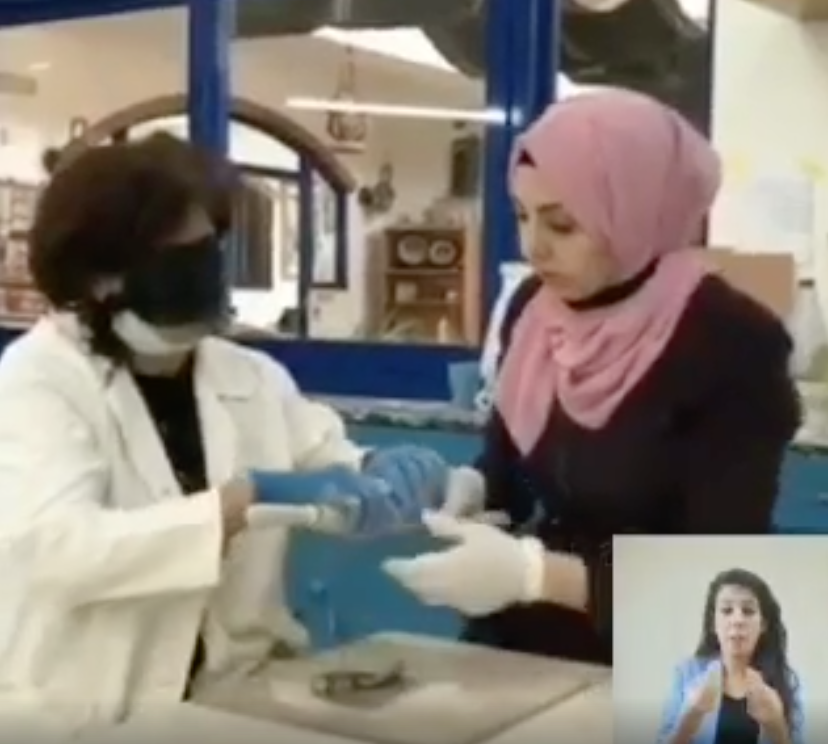
Salt, Jordan
Holy Land Institute for the Deaf
In March HLID followed the direction of the Jordanian government and sent all students home. HLID teachers developed a program of their own for online education for deaf students. Students are spread throughout Jordan – including refugee camps and many poor communities without Internet access.
To ensure that every student could participate in online classes, HLID took on the added financial burden to provide Internet access for students whose families could not afford it.
Archdeacon Luay Haddad, executive director of HLID, told us recently, “Despite all the rough circumstances we face, we must continue being part of God’s ministry here on earth.”
The loss of income from teacher training courses and student boarding fees, coupled with the expense of developing and enabling online education for all students, puts HLID in a precarious financial position. Archdeacon Haddad added, “The future of our beloved institute is not certain yet.”
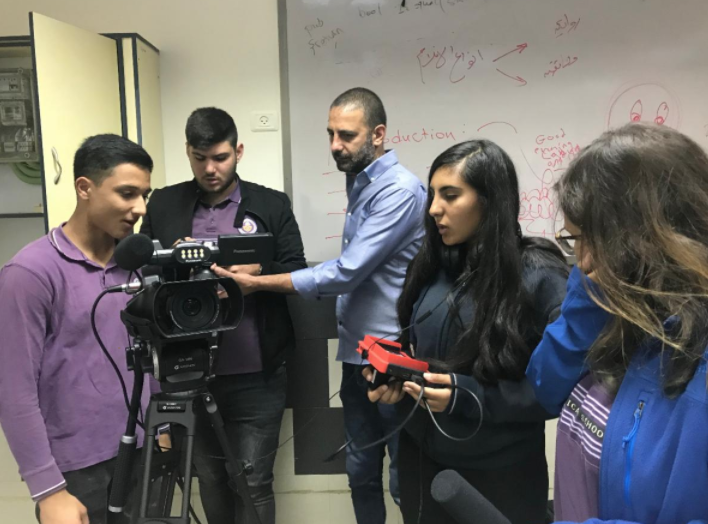
Nazareth, Israel
Christ Episcopal School
Archdeacon Samuel Barhoum, director of Christ Episcopal School, reports that teachers and students did an excellent job in transitioning to online learning when schools closed in Israel. Most of Christ School’s 1,200 K-12 students thrived with this new way of teaching, but there were difficulties for families without a computer or where there were many children in the family who needed to share one computer.
Schools in Israel reopened on May 4, but attendance is optional and online learning continues for families hesitant to send their children back to school. Most parents have stopped paying tuition due to economic hardship, and Christ School is struggling to pay teachers’ salaries.
